Why I Ran from Vipassana
A journey into silence, self-doubt, and the unbearable weight of my own mind.
From May 2017 to April 2019, I had the busiest and most productive time of my life. As a Teach for India fellow, I taught 100 kids full-time in a government school. Saturdays were working days, and most Sundays were spent taking students to extracurricular engagements across Mumbai.
By the last few months of my fellowship, my mind was already planning what I would do once my fellowship ended. I had the entire month of May free before starting my next job in June.
Before joining Teach for India, I had travelled solo to Spiti for three weeks. The following year, I spent a month in Bangalore at a friend’s place. This time, it only felt fair to plan something extravagant.
While other fellows made travel plans across India, and some even booked international trips, my mind was fixated on something entirely different.
I was in the middle of a depressive episode, trapped in my thoughts. Calling it overthinking would be an understatement. A friend had attended a Vipassana meditation retreat sometime back, and for some reason, the idea had a magnetic pull on me.
10 days of silence. No phones. No books. No writing. No camera. No eye contact. No speaking to peers. 11 hours of meditation every single day.
Even typing this now fills me with fear. The absolute deprivation of everything meaningful and beautiful. And yet, back then, this setup felt like the perfect escape.
I was naive to believe that silence outside would mean silence within.
Like every summer, I was to spend a few weeks at my grandparents’ village in Rewari, Haryana. So, I booked the closest Vipassana center - Rohtak’s Vipassana Center in Lahli village nestled amidst endless farmlands.
My brother came all the way from Rewari to drop me off. The center, located in the middle of nowhere, excited the traveller in me. Finally, some quiet after years of wearing the hat of a teacher, constantly surrounded by voices. I handed over my phone at the reception, surrendered anything that could distract me, and was shown to my humble room, which I would be sharing with another person.
My brother’s face was long. He masked his concern with my excitement, but I could tell he wasn’t convinced. This brief interaction with him was my last form of human contact before stepping into complete isolation.
The first few hours of Day 0 felt light. I remember being extremely observant. The trees, the grass, the farms surrounding the center, the different faces of people who had also come for Vipassana. I took slow breaths, wandered the small campus, taking turns exploring what would be my home for the next 10 days.
In the evening, the orientation session began. One by one, the rules and guidelines were explained. With each new rule, my excitement grew. It felt experimental, almost like a social experiment, and I was grateful that it was only for 10 days. Any longer, and I knew it would be too much. But coming from one of the busiest cities in the world, Mumbai, I was convinced that 10 days would pass in a blur. I would return calmer, clearer, and more sorted.
That night, with no phone to scroll, no one to call, nothing to read, and no one to talk to, I lay on my bed arrested by my thoughts.
My roommate had arrived - a man in his mid 40s, short and muscular. I only prayed he wouldn’t snore. He didn’t. I found myself wondering: What brought him here? For me, it was obsessive overthinking. What was it for him? Was he married? Single?
These thoughts carried me until the loud wake-up bell rang. It was still dark. With no way to check the time, I assumed it must be around 4 AM, as our first meditation session was scheduled for 4:30 AM.
Even after brushing my teeth and getting ready for the first meditation session, my head still rang with the noise of the wake-up bell. What a pathetic way to wake someone up, I thought.
The walk to the hall from my room felt eerie. Nobody was talking, as per the rules, yet the silence felt unfamiliar. So many people together, yet each entirely within themselves. As we approached the hall, I noticed that the women entered from a separate, far-off gate. That’s when I realized that there were women in the facility too. A strange sense of comfort settled in. Not because of any particular woman, but just their presence. It made things feel a little less severe.
The next few hours stretched into what felt like decades. Every minute dragged on like an hour, and even though I had reflected upon my entire life twice, the needle on the clock barely moved. Just 30 minutes? And there were 10 more hours of meditation left for the day. And 10 more days to go.
“Boy, I am fucked.” I thought to myself.
As the sun scorched the lonely center between farmlands, my mind too began to burn growing restless, anxious, agitated. This was exactly what the Vipassana experience was designed for: to strip away every distraction, leaving just you and your mind, with no escape. No respite. Just the brain and its so-called master.
The only parts of Day 1 I enjoyed were eating, taking a short nap in the afternoon, and watching the evening discourse by the master. That one hour felt like some sort of communication, one-sided, but still something.
It didn’t take long for my mind to shift from boredom to outright torture. I think it was on the afternoon of Day 2 that I broke down in the meditation hall. People turned to look, but I continued silently sobbing, trying to hold back my tears so as not to disturb others. Everything came rushing back, the very reasons why I had abandoned all my travel plans to come here, the months of feeling depressive leading up to Vipassana, the obsessive thoughts. My already overthinking mind was now on steroids. With no distractions, whatever little control I had over it had completely vanished.
That was when, for the first time, the thought came: Fuck this, I should go home. And immediately after, the dreadful realization: Oh no, there are eight more days left. A hollow feeling washed over me. I had never known time could stretch like this. That a single minute could feel so unbearably long. And the worst part? I was realizing just how disturbed I truly was that even spending time with my own mind was worse than any punishment I could have imagined.
The next few days blurred into a haze of tears and obsessive grass-counting. Yes, counting grass. In the free time before sessions, I would sit in the blistering May heat, painstakingly tallying blades of grass just to kill time. My body ached for rest, but lying down only made me more restless. So, I sat outside, staring at the ground, grasping at any semblance of control.
The only relief was the evening discourse. That one hour, followed by sleep, was the closest thing I had to comfort. But even that didn’t last long. At some point, I stopped counting the days left. It only made me feel worse.
I should leave this hellhole. My rational mind screamed at me. The idea of leaving became the only peace I had felt in days.
On Day 5, I finally acted on it.
Of course, I didn’t make this decision calmly. I was having yet another breakdown in the middle of a session when the instructor called me aside. I told him I wanted to leave.
They didn’t make it easy. “Trust the process.” “This is how healing happens.” They threw every argument at me, but I didn’t care. I didn’t want to heal anymore. I just wanted to go back to my distracted, unhealed, broken self. At least that version of me could function.
Still, I hesitated. I gave it one more night. Just to be sure.
But time only slowed down further. And now, on top of my mental exhaustion, shame crept in. Out of 60+ people, I was the only one breaking down. The only one begging to leave. The overthinking that had brought me here in the first place was now in overdrive.
Why was my own company so unbearable? Was I really that miserable? That impure? That unworthy?
If I can’t even stand being with myself, how do others tolerate me? Do they even know the real me?
By the next day, I was done. Severely alone, exhausted from crying, and drained from facing my own mind, I repeated my request to leave. After an hour of back-and-forth arguments, I packed my bags and walked out onto the open village road.
I had my phone now, but I didn’t know what to do with it anymore. I switched on the internet to watch messages flood in. I ignored them. I lacked energy to read them, let alone respond.
As I walked down the empty highway toward the bus stop, I called my partner. Then my parents. I could barely speak. I couldn’t do it.
“I left.” That’s all I managed to say.
I was supposed to go home. But no part of me wanted to. I had no choice. I was too drained to think of an alternative. I caught the first bus to Rewari and slept for sometime.
After Vipassana
I had told so many people about my Vipassana experience that, upon returning, everyone wanted to know how it went. It was difficult to explain. How do you articulate a kind of suffering that doesn’t make sense? A pain that doesn’t stem from an external source but from within?
I wanted to talk about it, but I couldn’t. Not properly. Vipassana became a blind spot in my life - something I went through, something that shifted me, yet something I now preferred not to think about.
And my struggles didn’t end after leaving. If anything, they multiplied. I threw myself into different paths. Sri Sri Ravi Shankar’s Art of Living, Sadhguru’s Inner Engineering, smaller spiritual experiments. Searching, seeking, trying to make sense of it all.
It would take years for me to truly understand what Vipassana had revealed to me: that I needed to heal from something.
For months after, I couldn’t shake one thought - Why couldn’t I spend just 10 days with myself?
I stopped being hard on myself for it. Instead, I became intentional about finding ways to be better. Looking back, I wouldn’t change a thing. Every step, every struggle, every breakdown it all led me to where I am now.
If there’s one thing I wish I had known before Vipassana, it’s this: not all experiences of it are positive. That’s why I’m writing this.
Because no matter how powerful a method of healing may be, it doesn’t mean it’s for you.
It took me a lot of compassion, love, honesty, hugs, slowness and empathy to heal. Ofcourse it took longer than the 10 days of Vipassana and ofcourse this route wasn’t easier either. However, I realised that submitting my control of healing to someone or something else didn’t work out for me and that was a mirror to me for my own understanding of Vipassana.
I invite you to reflect and write on the following prompt:
Sit in silence for 10 minutes. Notice where your mind goes.
What does it resist? What does it cling to? Write about it.
As a feature of all my newsletters, I share one song, one book, one plant-based meal, one film/video that inspired me, and some photographic updates from my life.
Song: I have been listening to new rap artists like Hanumankind, Seedhe Maut, Yashraj etc. Not the kind of music to unwind but I love the high energy, the fun lyrics and the interesting music videos.
Book/Newsletter: I just finished reading Rental Person Who Does Nothing. I absolutely loved the philosophy of it and how beautifully the writer has illustrated his experience being a rental person in Japan. The book is part experimental writing and part philosophical. I loved it. Now, I am reading -
Meal: I have been at my parents house for the past 2 weeks for work and other commitments and I have been having the most healthy, soulful and tasty meals, all thanks to my lovely mother. I forgot to take photographs but I absolutely loved having my favourite vegetable - Brinjal (baingan ka bharta) last week.
Film/Video: I watched Adoloscensce. My mind is blown. It’s on Netflix please watch it.
Photograph(s):

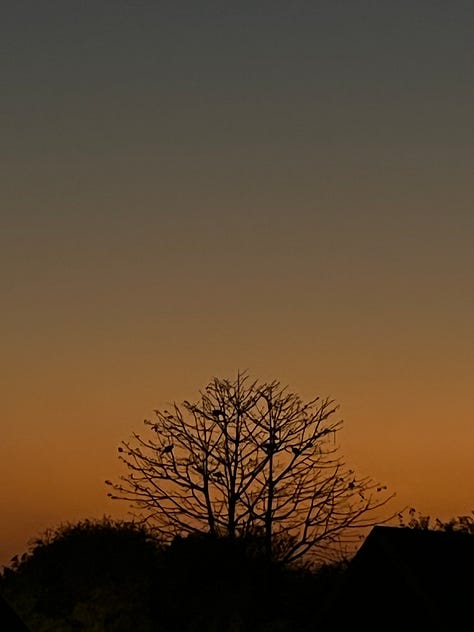

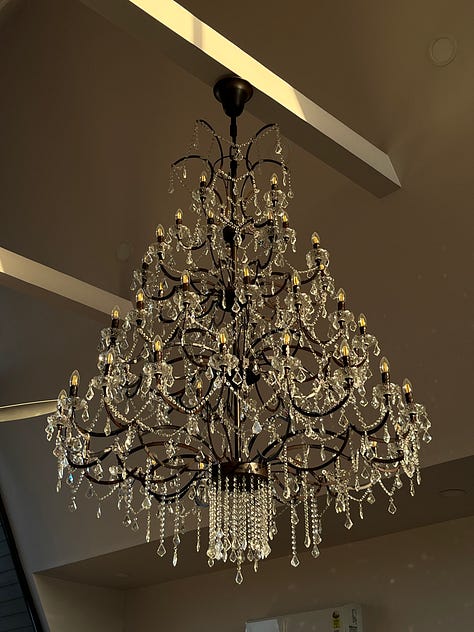
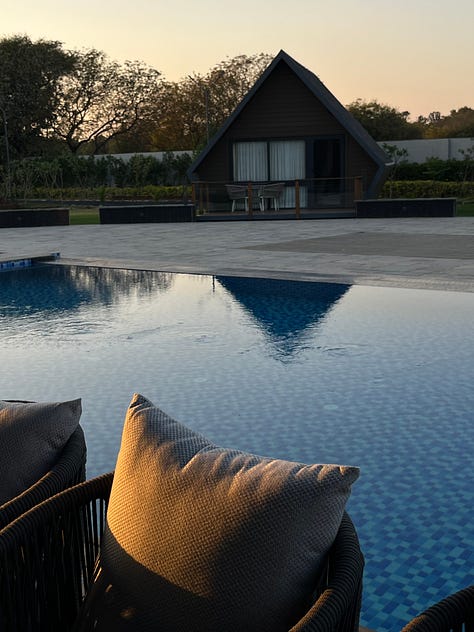

Sheher Bagh - A Farm Stay in Delhi
Read my other newsletters :
The story of moving to the mountains
My relationship with failure
Photography, my first love
Read my short stories :
Compilation of all recommendations :
Video recommendations by Creative Writing Laboratory
Music recommendations by Creative Writing Laboratory
Books read by Creative Writing Laboratory
Free Journaling eBook:
Last year, I compiled a journaling ebook for myself for times when I feel I have nothing to write. I am offering it to you for free. Whether you’re starting your journaling journey or feeling stuck in a creative block, this guide will help you find your way.
Download your journaling eBook here.
Thank you for reading my work
Rishabh Khaneja
Creative Writing Laboratory
Instagram | Substack | LinkedIn | Creative writing workshops






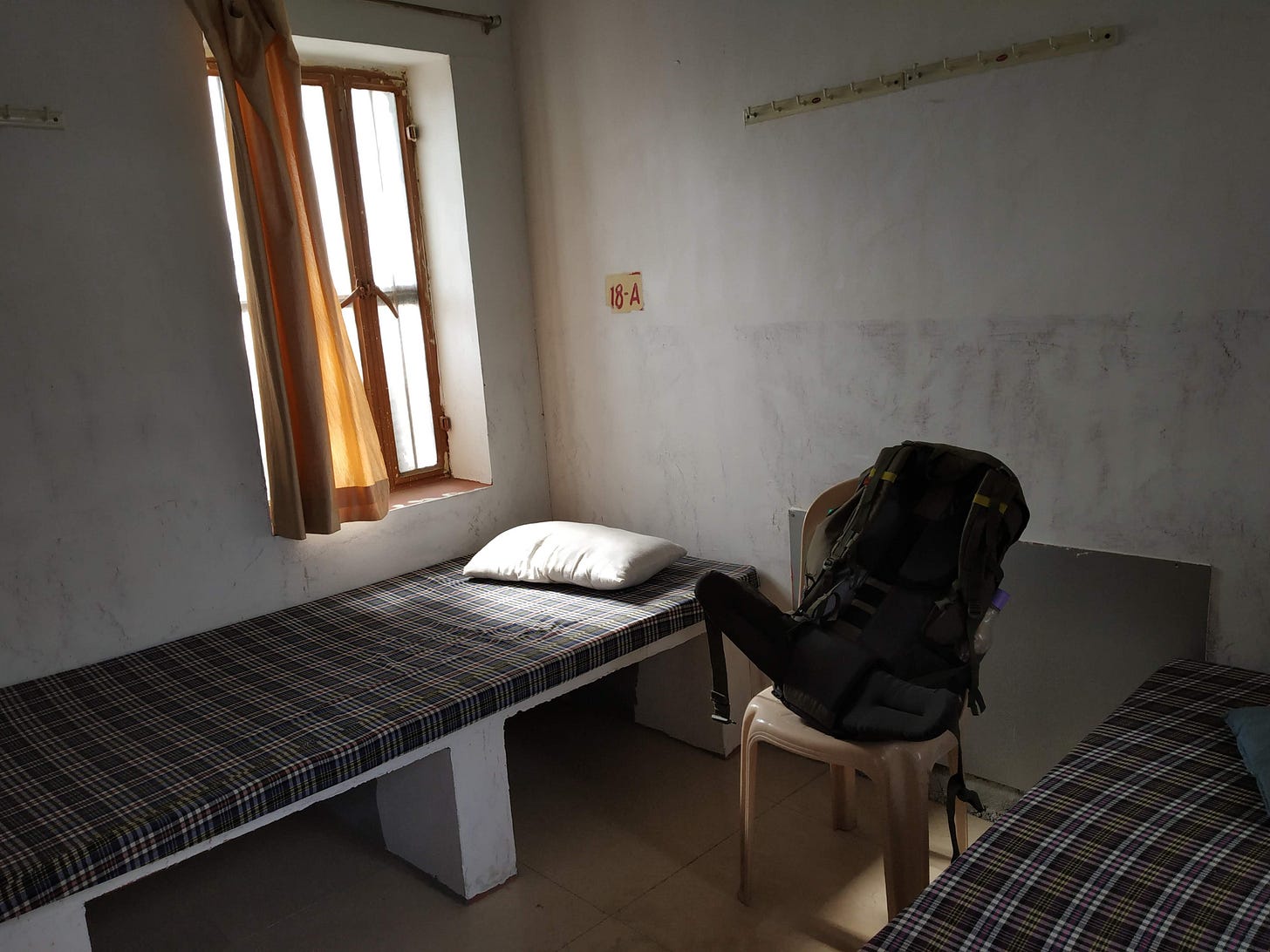
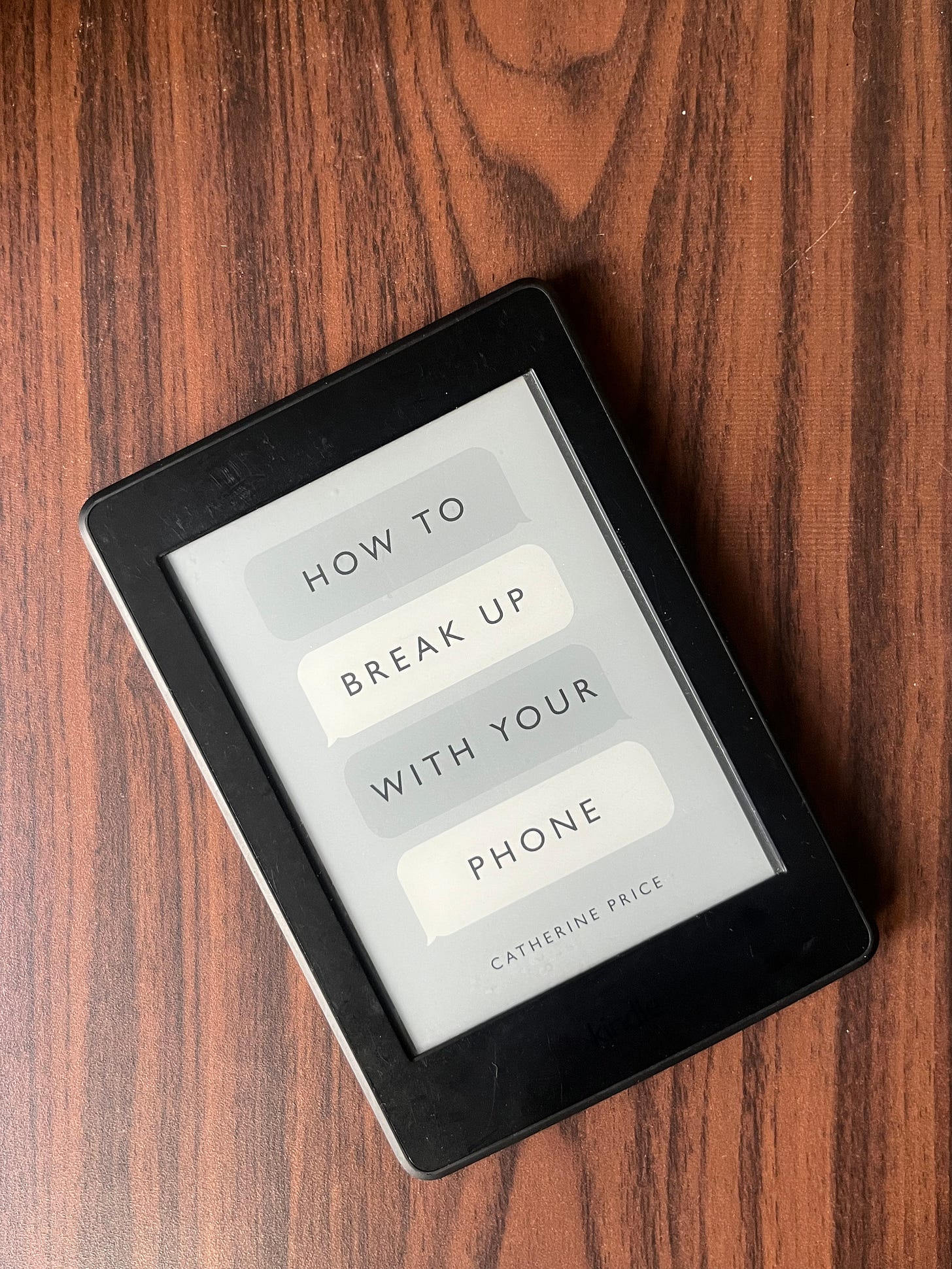
I love it that you shared tour experience so candidly.
I have been doing the vipassana 10 courses for 2 years now. For people who freakout after finding out what it entails, I just have this to say —-
These 10 days are only meant to make you utterly tired of the restless chaotic mind of yours. So much so that you stop taking it too seriously. Period.
Thank you for writing this down with such honesty. I've been distracted for quite a long time to just sit and read anything, but this held my attention till the very end. And, the part where you explained how you felt when you saw women walking in and you feeling better about it, brought some ease to me as well while reading. I didn't know that even men feel safer and more comfortable with women's presence.